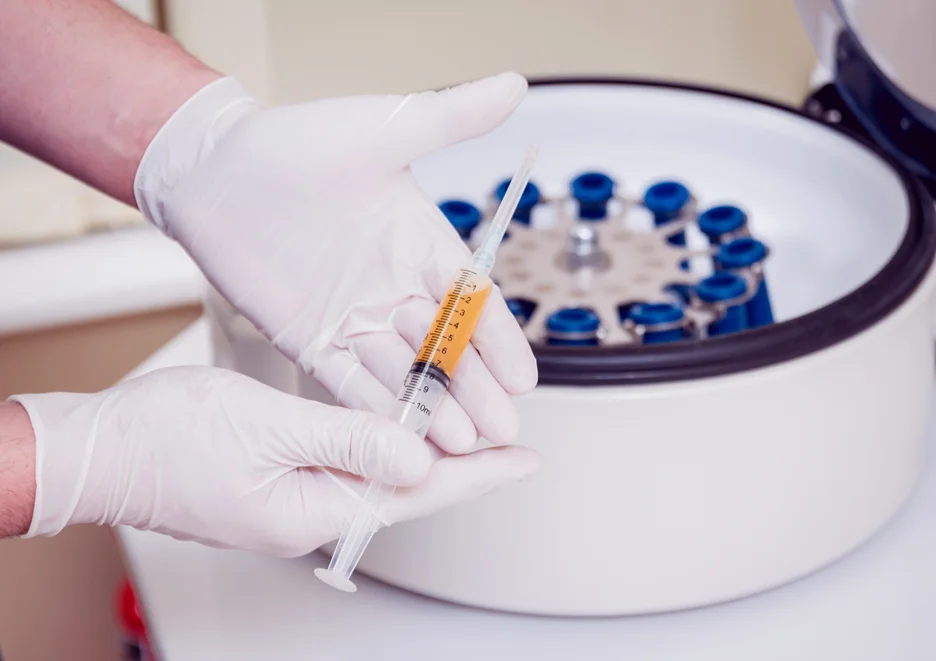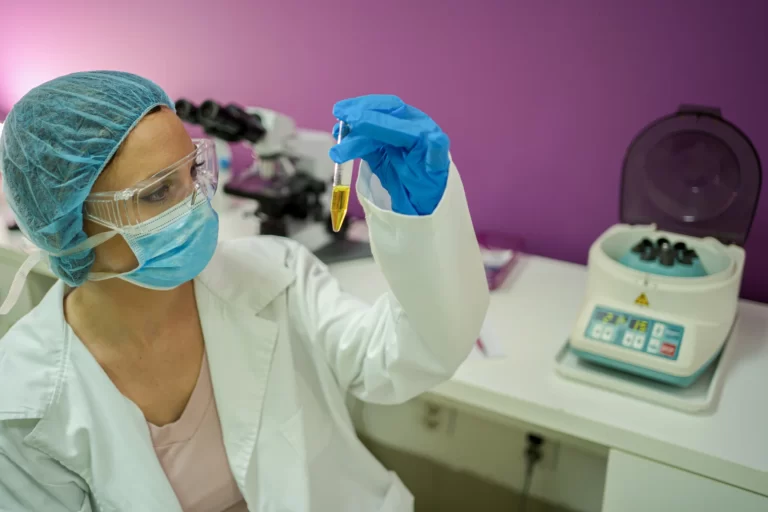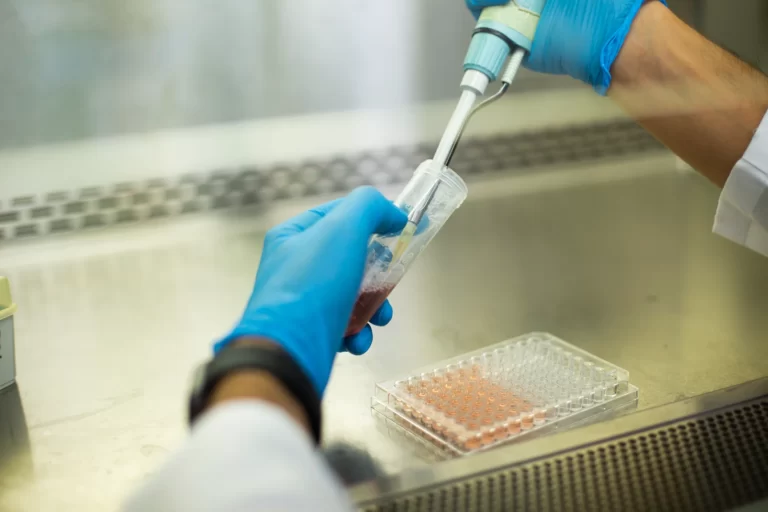At FACE Med Store, we’re always looking to the future.
We want to bring you, our valued customers, the most cutting-edge wellness solutions. That’s why today we’re spotlighting one of the most exciting developments in aesthetic medicine: exosomes.
You may have heard about the regenerative power of stem cells. Stem cell therapies show promise, but they pose risks. Exosomes provide similar benefits, with none of the downsides.
Keep reading as we explore the science behind exosomes and why they’re the next big thing.
What Are Exosomes?
Exosomes are tiny lipid vesicles released by cells that act as messengers, transporting genetic material, proteins, and mRNA between cells. They play a key role in cell-to-cell communication and regulate many biological processes in the body.
Exosomes derived from mesenchymal stem cells (MSCs) in particular have shown immense promise in anti-aging and regenerative medicine.
When stem cells are cultured, the exosomes they secrete are isolated. These exosomes contain the same genetic material, growth factors, and signaling proteins as the stem cells themselves.
But why use exosomes instead of the actual stem cells?
Which is Better: Exosomes vs Stem Cells

Now that you understand the basics of both exosomes and stem cells, you may be wondering – which should you ?
As with any treatment plan, there are multiple factors to weigh when deciding between exosomes and stem cells. Here are a few key considerations:
| Factor | Exosomes | Stem Cells |
| Safety | Seen as less risky overall than stem cells | Longer safety track record in humans to date |
| Efficacy | Rely on cell signaling | Can directly replace damaged cells through differentiation |
| Mechanism | Immunomodulation through secreted factors | Also modulate immunity via secreted factors |
| Production | Fewer sourcing restrictions, less processing | Can be more labor intensive to produce |
| Outcomes | Similar benefits in some applications | More research needed |
The Case for Exosomes
The contents of exosomes closely reflect the functionality of their originating cells. For example, immune cell-derived exosomes bear antigens involved in immunosurveillance. This makes exosomes incredibly useful as therapeutic agents and more.
Some of the ways exosomes are being leveraged:
- Regenerative abilities: Exosomes derived from stem cells have been found in preclinical studies to promote tissue regeneration, accelerate wound healing, and reduce inflammation in various conditions. The factors they contain, like growth factors and cytokines, signal to recipient cells and drive reparative effects.
- Drug delivery: Due to their stability, biocompatibility and ability to target specific cells, exosomes are being explored as next-gen drug delivery systems, including for gene therapies. Exosomal cargo appears protected.
- Immuno-modulation: Exosomes influence immune pathways and responses. They show potential to suppress inflammation from a hyperactive immune system, such as in autoimmune disorders, or to stimulate the immune system to fight disease.
- Biomarkers: The contents of exosomes closely mirror and can provide insights into the current state of their originating cells and tissues. Analysis of exosomes presents a non-invasive approach to diagnostics and monitoring treatment responses.
As you can see, the applications of exosomes are far-reaching. More research is uncovering their tremendous therapeutic potential every day.
How Exosomes Promote Anti-Aging and Healing

When injected intravenously or into target tissues, the exosomes get to work repairing damage, controlling inflammation, and stimulating regeneration. Here are some of the amazing things exosomes can do:
- Exosomes contain growth factors that tell your body to create new blood vessels in areas needing repair. This promotes faster healing.
- The exosome cargo includes regulatory proteins that reduce oxidative stress. This has powerful anti-aging effects.
- Exosomes flip inflammatory switches in the body to reduce chronic inflammation. This can alleviate joint pain, improve heart health, and even slow neurodegenerative diseases.
- Exosomes transfer mRNA that encodes anti-apoptotic proteins to damaged cells. This prevents premature cell death and favors tissue growth.
- Exosomes stimulate collagen production and tissue remodeling. This restores youthful elasticity and strength to aging skin and joints.
- Exosomal mRNA and microRNAs promote proliferation and differentiation of progenitor cells, acting as nature’s regenerative factory.
- Exosomes enhance immune regulation, prevent fibrosis after injury, and have antibiotic effects – all contributing to better healing.
In essence, exosome treatments harness and amplify your body’s intrinsic capacity to heal itself. Exciting research continues to uncover ways these tiny vesicles benefit health and longevity.
The Power of Stem Cells
Now, let’s explore stem cells. As you know, stem cells are unspecialized cells that can self-renew and differentiate into many distinct, specialized cell types. This ability is what gives them such incredible therapeutic promise.
Stem cells progress down particular differentiation pathways based on chemical cues they receive from their environment. For regenerative medicine, the key benefits stem cells confer are:
- Self-renewal to support ongoing tissue replenishment and repair
- Differentiation to replace damaged cells
- Immunomodulation to calm inflammation and curb immune over-activity
- Stimulating endogenous repair by secreting reparative growth factors and cytokines
Researchers are working to derive stem cells from various sources for personalized medicine:
- Embryonic stem cells
- Induced pluripotent stem cells reprogrammed from adult cells
- Adult stem cells found in tissues like bone marrow and adipose
- Umbilical cord blood stem cells
Mesenchymal stem cells (MSCs) are currently the most commonly used in clinical applications. They can differentiate along multiple lineage pathways to produce various specialized cells.
This makes MSCs a promising option for autoimmune and inflammatory conditions – they can help restore an imbalance in the immune system. MSCs also promote neurite outgrowth, pointing to applications in neurological disorders.
Why Exosomes Are Better Than Stem Cells

Stem cells have long been touted for their therapeutic potential. However, stem cell treatments come with several drawbacks:
- Stem cell harvesting can be painful and invasive. Exosome extraction is much simpler, involving no harm to patients.
- Exosomes are safer, with no risk of stem cell overgrowth or development of tumors/cysts.
- Exosomes exhibit superior bioavailability and stability with a longer shelf life. Stem cells have short survival times after injection.
- Exosomes are not immunogenic, preventing immune rejection. Patient-derived exosomes perfectly match the recipient.
- Exosomes can cross biological barriers to reach target tissues. Most stem cells get trapped in the lungs and liver after intravenous injection.
- Exosomes have the innate ability to home to injured areas in the body. Their small size allows deeper tissue penetration.
- Exosome therapy avoids legal and ethical concerns associated with the use of stem cells.
At FACE Med Store, we believe the future of regenerative medicine lies in leveraging both the innate abilities of stem cells and the unique advantages of exosomes.







